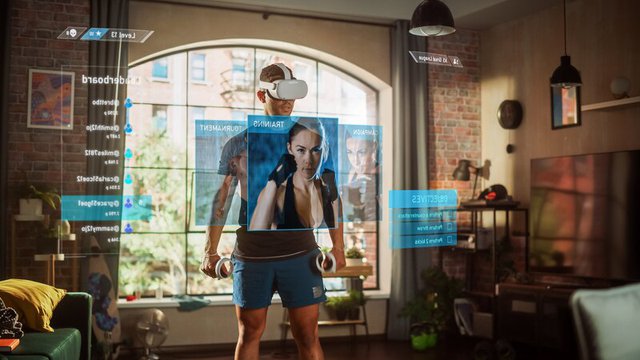
How does AI assist in sport performance analysis?
Edited on Sept. 30, 2025

The sports industry has entered a digital revolution. From professional clubs to amateur athletes, the integration of technology is reshaping performance, training, and injury prevention. But one question arises: how does artificial intelligence in sport performance analysis really work, and why is it considered a game-changer?
For those interested in combining passion for sport with cutting-edge digital tools, the Master in Sports Technologies and Digital Transformation at Escuela Universitaria Real Madrid offers the perfect academic pathway. It equips students with the knowledge to understand and apply AI-driven methods that transform the sporting world.
Defining artificial intelligence in sport performance analysis
The phrase artificial intelligence in sport performance analysis refers to the use of machine learning algorithms, data models, and computer vision systems to study athlete performance. Instead of relying only on manual observation, AI analyses large amounts of real-time data, producing actionable insights.
This means athletes and coaches can go beyond guesswork: they can measure every movement, predict performance outcomes, and create customised strategies for training and competition.
How AI tracks and interprets data
AI collects data from a wide range of sources, including wearables, video footage, GPS trackers, and biometric sensors. Once gathered, algorithms evaluate patterns that humans might miss. In practice, this includes:
- Movement analysis: Detecting inefficiencies in running, jumping, or swimming techniques.
- Workload monitoring: Ensuring players train at optimal intensity without risking overtraining.
- Tactical insights: Analysing team positioning and decision-making during matches.
- Injury prediction: Flagging early warning signs to help prevent serious injuries.
By combining these insights, artificial intelligence creates a complete performance profile for each athlete.
Real-world applications of AI in sport
The use of artificial intelligence in sport performance analysis has rapidly expanded across different sports:
- Football: AI analyses passing accuracy, sprint distances, and heat maps to improve match preparation.
- Tennis: Computer vision systems assess swing mechanics and shot selection.
- Cycling: Wearable sensors track cadence, heart rate, and power output for training optimisation.
- Basketball: AI tools monitor shooting accuracy and player fatigue levels.
In each case, AI brings precision and personalisation, making training smarter and more effective.
Conclusion: why AI matters in sport performance
The impact of artificial intelligence in sport performance analysis is undeniable. It empowers athletes to push their limits, coaches to design smarter strategies, and teams to remain competitive in a technology-driven era.
For students pursuing the Master in Sports Technologies and Digital Transformation at Universidad Europea, or considering another of our sports master degrees, mastering these AI applications opens opportunities in professional clubs, fitness industries, and innovative start-ups.
In summary:
- Artificial intelligence in sport performance analysis = AI-driven data evaluation to optimise performance.
- Tracks movement, workload, tactics, and injury risk.
- Applied in sports like football, basketball, tennis, and cycling.
- Future innovations: virtual coaching, AI nutrition, and AR training.
- Key for careers in sports technology and digital transformation.
Article published on Sept. 19, 2025